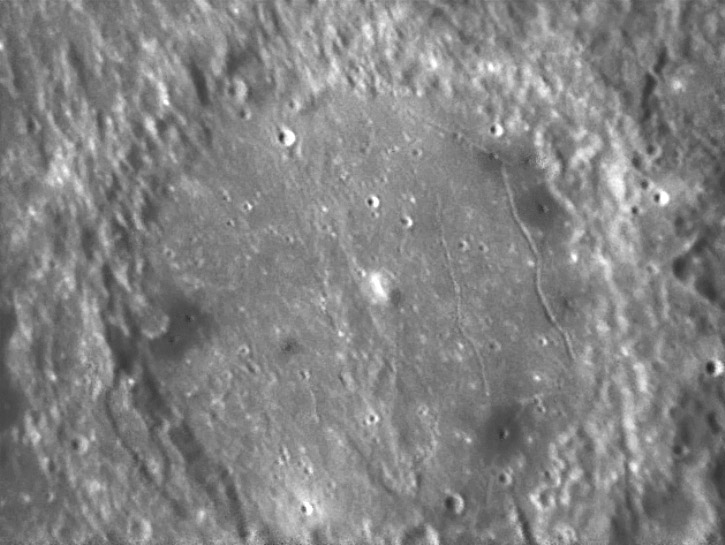January 30, 2009
3 Billion Years Too Late

image by Alex Sanz, Ayllón, Spain
In 1959 the Russian astronomer Nikolai Kozyrev spectroscopically observed what he interpreted as gases escaping from the central peak of Alphonus. He believed he witnessed a volcanic eruption and that the central peak and ridge were still forming volcanoes. Since that time it has been recognized that the small pits within the seven dark patches on the floor of Alphonsus are volcanic craters. After all these years was Kozyrev actually right? With volcnic pits on the floor, doesn't it make sense then that the central peak is also a volcano? Sadly, no. In 1959 little was known with any accuracy about the Moon. Russians and others believed the Moon's craters were volcanic. But in the 60s it became clear that virtually all lunar craters formed by impacts. And we also learned that central peaks are rebound structures created by the impacts. Later, remote sensing techniques demonstrated that the central peak of Alphonsus is made of anorthosite, a non-volcanic rock believed to underlie surface crustal rocks and completely consistent with a rebound. Alphonsus was formed before the Imbrium impact (evidenced by the linear gouges that cut its walls), its peak is made of rocks that must be older, and even the dark halo volcanism stopped about 3 bilion years ago. Most scientists now discredit Kozyrev's spectroscopic data and interpretation - there was no volcanic eruption 50 years ago. And that is sad, for a volcanically active Moon would be much more exciting to observe and explore than the dead one of reality.
Chuck Wood
Technical Details
21 Aug 2008. SCT 11" f/30 + DMK 21AU04; Processing: Registax, MaxIm and PS CS2.
Related Links
Rükl plate 44
1958 video of Kozyrev.
Yesterday's LPOD: An Oblique Impact
Tomorrow's LPOD: It's Only a Paper Moon, 2.0
COMMENTS?
Register, Log in, and join in the comments.



